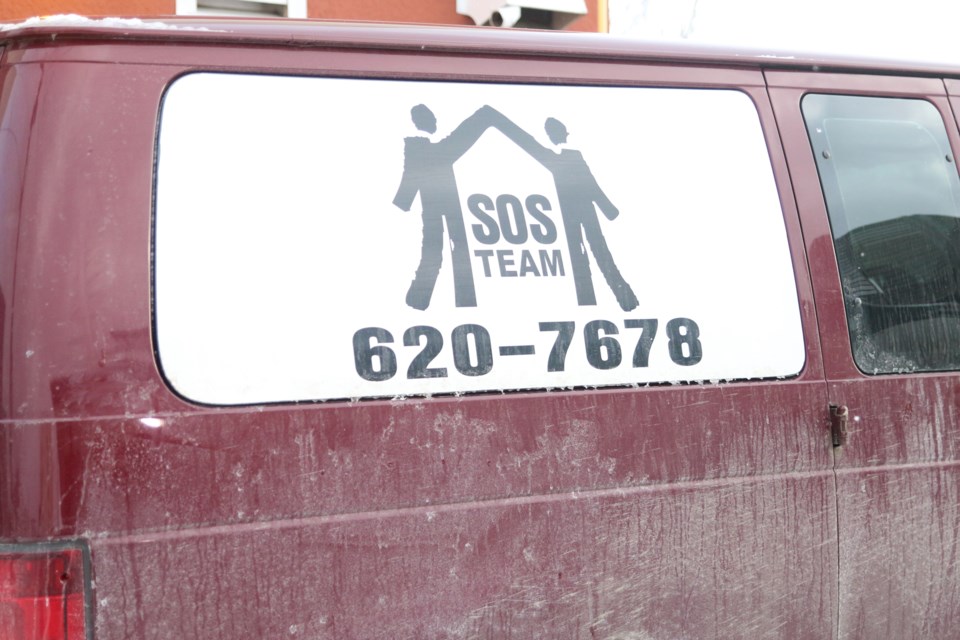THUNDER BAY – The Shelter House’s Street Outreach Services program is back on the road following a four-month suspension after fundraising campaigns raised more than $150,000.
The mobile outreach program, which had been temporarily shut down earlier this year due to funding shortfalls, was reinstated Tuesday after enough money had been raised to guarantee the service will be able to operate until at least August 2018.
Shelter House executive director Gary Mack said the program, which began in December 2013 as a cold weather pilot project, serves a need in the community.
“There are homeless people in crisis all year-round and we are an appropriate service to assist,” Mack said.
“We have the relationships built. We’re also very cost-effective and we can take people to where they need to go. Maybe they come back here to Shelter House, maybe they’re going to a withdrawal management centre, maybe they’re going to the hospital.”
Operating the S.O.S. program year-round requires a $270,000 budget to cover the cost of wages for the three teams of two workers, gas to operate the van and to provide supplies to people on the street. Currently, Shelter House receives about $150,000 from Thunder Bay city council and the Thunder Bay District Social Services Administration Board to run the service.
The program was changed to a 12-month service in 2015 but Shelter House officials announced in March it would be frozen effective April 1 as a result of the continued funding gap.
In 2016 the program, which runs daily for 12 hours, provided nearly 5,000 transports and doled out more than 21,000 amenities.
“We go to areas where homeless people are known to congregate and where there are encampments around the city,” Mack said. “They’ll be there handing out amenities to people so we hand out food, water, blankets and harm reduction supplies.”
Michelle Jordan, the program manager for Shelter House, said the S.O.S. program was impactful for clients.
“It’s very frustrating for clients when they don’t have transportation from the hospital or to appointments or when they’re in crisis on the street,” Jordan said.
At the time of the suspension, leaders of both the police and paramedic service lauded the program and said it helped reduce 911 demand.
Mack said he heard from both organizations they saw an increase in their call volumes.
“Both confirmed right after we ended the program they noticed a difference in the amount of calls they were receiving,” Mack said.
The organization received significant funding contributions from Matawa First Nations Management, Nishnawbe Aski Nation, Eabametoong First Nation, Fort William First Nation, Goldcorp Musselwhite Mine, Kristopher and Sharon Knutsen, the Thunder Bay Community Foundation, the Joseph Esquega Health Centre and OPSEU. As well, the cause generated international attention when a formerly homeless person anonymously donated $10,000 towards reinstating S.O.S.
